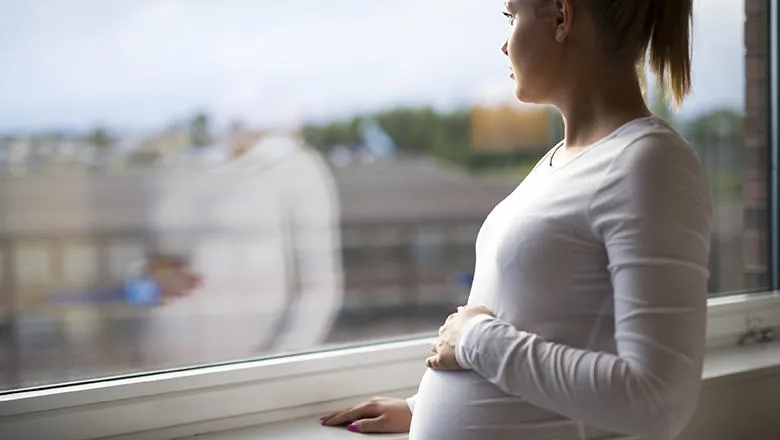07 March 2019
High rates of mental illness among young pregnant women in London
New research from King’s College London suggests two-thirds (67%) of pregnant women in London aged between 16 and 24 years have mental health problems including depression, anxiety disorders, post-traumatic stress disorder and obsessive-compulsive disorder.

The study, funded by the National Institute for Health Research (NIHR), found anxiety disorders, in particular social phobia, were especially high.
By comparison, the study suggests roughly one in five (21%) pregnant women in London aged 25 years and over have mental health problems.
Researchers from Institute of Psychiatry, Psychology & Neuroscience (IoPPN) recruited 575 women through their first antenatal appointment with an inner-city London maternity service. Of this group, 57 women were aged between 16 and 24.
All women were interviewed using a psychiatric gold standard diagnostic interview to determine if they met the criteria for one or more mental health condition. The researchers also recorded information about their socio-demographic background, such as ethnicity, educational level and employment status.
According to the research, published today in BJPsych Open, pregnant women under 25 were also more likely to be non-white, single, living in poverty, homeless or living in emergency accommodation, unemployed, or have an unplanned pregnancy.
The rate of lifetime abuse was high (38.9%), with rates of sexual abuse at 20.6% and partner abuse at 19.5%. The researchers note that this is probably an under-estimate, as abuse is often under-reported. Experience of abuse and living alone were both risk factors for mental health problems in this group.
Lead author Dr Georgia Lockwood Estrin, Senior Research Associate at the IoPPN, said: ‘We’ve shown a shockingly high prevalence of mental disorders in young pregnant women aged 16 to 24 years in London compared with women aged 25 years or older. We found that, in comparison to previous research focused primarily on postnatal depression, young women experience a broad range of mental disorders during early pregnancy, with anxiety disorders being particularly prevalent.’
The researchers particularly highlight that thehigh risk for mental disorders is not limited to pregnant teenagers, as suggested by previous research, but remainshigh for women in their early 20s.
The researchers say that more could be done to target perinatal mental health services at women aged under 25. This aligns with the recent NHS Long Term Plan and NHS Five Year Plan* to ensure that by 2023/24 at least 54,000 more women each year can access evidence-based specialist mental health care during the perinatal period.
Professor Louise Howard, senior author on the paper and NIHR Research Professor at the IoPPN, said: ‘We were alarmed to see such high rates of mental illness in pregnant women under 25. The recent National Well-Being Survey and other studies have highlighted that around one in four women under 25 have self-harmed and/or have mental illness - higher than in previous surveys - but our study suggests that pregnant women under 25 are at even higher risk of mental disorders.
‘This study needs to be repeated as it is based on relatively small numbers of women in a particular area of London, but our findings highlight the need for maternity services to ensure pregnant women under 25 are comprehensively assessed for mental health problems and domestic or sexual abuse so they can receive appropriate treatment and help.’
The full paper is available online.
